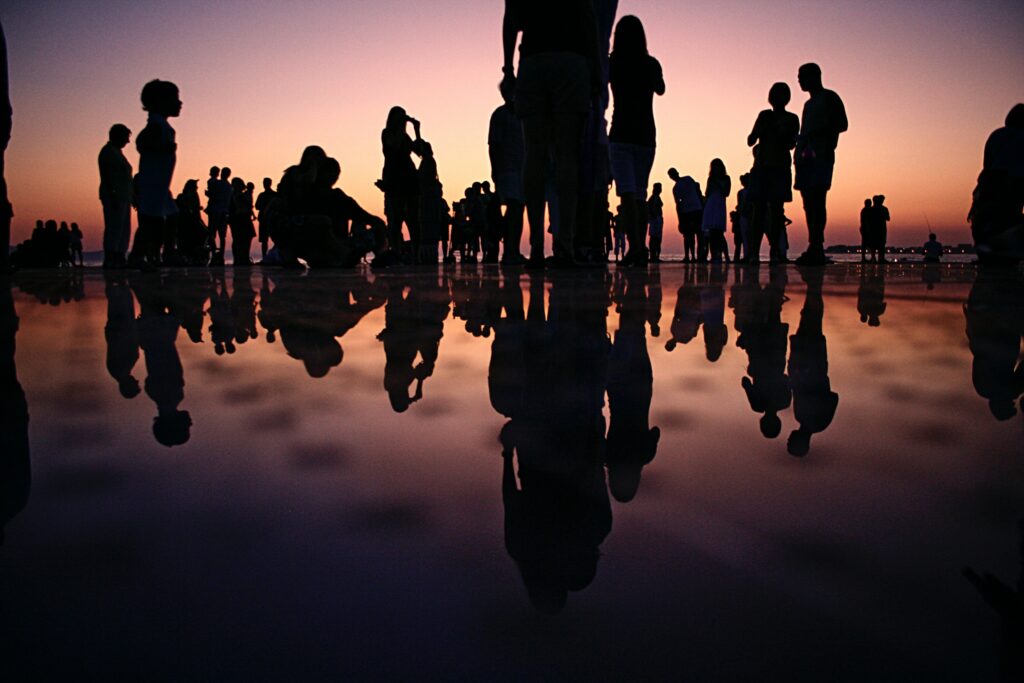By Kate Morgan ‘Head of Memorials’
In all cultures and throughout history, humans have created ways to formalise the process of saying goodbye and grieve together. From today’s ‘standard’ funeral in a suburban funeral parlour to enchanting smoking ceremonies conducted under a moonlit sky – an energetic procession of dancers following a body headed for cremation or a solemn service conducted by a religious leader; – rituals around death are a part of life.

For many, honouring a person’s life is an important part of expressing grief and love for the person who has died.
However, in modern Australian culture, it has become increasingly common to hear phrases like “I don’t want a funeral,” “Don’t cry for me,” or “I don’t want anyone to be sad” from our own elders.
It seems as though the idea of a ‘non-funeral’ has taken hold, as if removing this gathering of family and friends could somehow alleviate pain.
But what does this embargo on ceremony mean for the loved ones, mourning the death? Could this attitude be a reflection of how taboo death and loss have become in our society?
Francis Weller is an author, psychotherapist and teacher who writes about the human experience of grief and the transformative power of sorrow. He is known for his work in the field of depth psychology and for his insights into the ways that grief and loss can be used as a means of collective healing.
He writes, “This ritual brought us face-to-face with the reality of losing those we love. Letting go is a difficult skill to acquire, and yet we are offered no option but to practice. Every loss, personal or shared, prepares us for our own time of leaving. Letting go is not a passive state of acceptance but a recognition of the brevity of all things. This realization invites us to love fully now, in this moment when what we love is here.”
As someone who works closely with families as a funeral director and celebrant, I have witnessed firsthand the profound impact that ceremony can have on the grieving process. For me, what matters most is being able to help families create ceremonies that hold personal meaning. Whether we invent new rituals or honour age-old ones, a memorial or funeral serves to remember the person who has passed away. It allows us to celebrate their life and contemplate their influence on us. But perhaps most importantly, it brings us together in shared sadness, forging deep connections with one another.
Shared grief has the power to unite people.
When we gather together to mourn a loved one, we aim to create a space where everyone can feel understood, supported and comforted. This is the best environment to begin the process of healing. In a world that often encourages us to suppress our emotions and put on a brave face, these moments of vulnerability and connection can be transformative, providing a unique opportunity to contemplate the natural cycle of life and death.
In my work with families experiencing loss, I aim to break the taboo surrounding death. One of the ways I do this is to remain open and curious about the person who has died. Reminding them that they are not obligated to follow outdated ideas of what a funeral should be is also an important focus for me, as together we come up with more creative ways to celebrate their person.
Grieving openly, alongside family and friends is a profound human experience. I take my role in this process very seriously, but also try to bring lightness, space and warmth. Overall, I hope to create space for people to feel at ease, to be creative – to gather, remember, mourn, and find strength in one another.
Kate Morgan is Head of Memorials at Tomorrow Funerals, a modern Australian funeral business doing things differently.
…